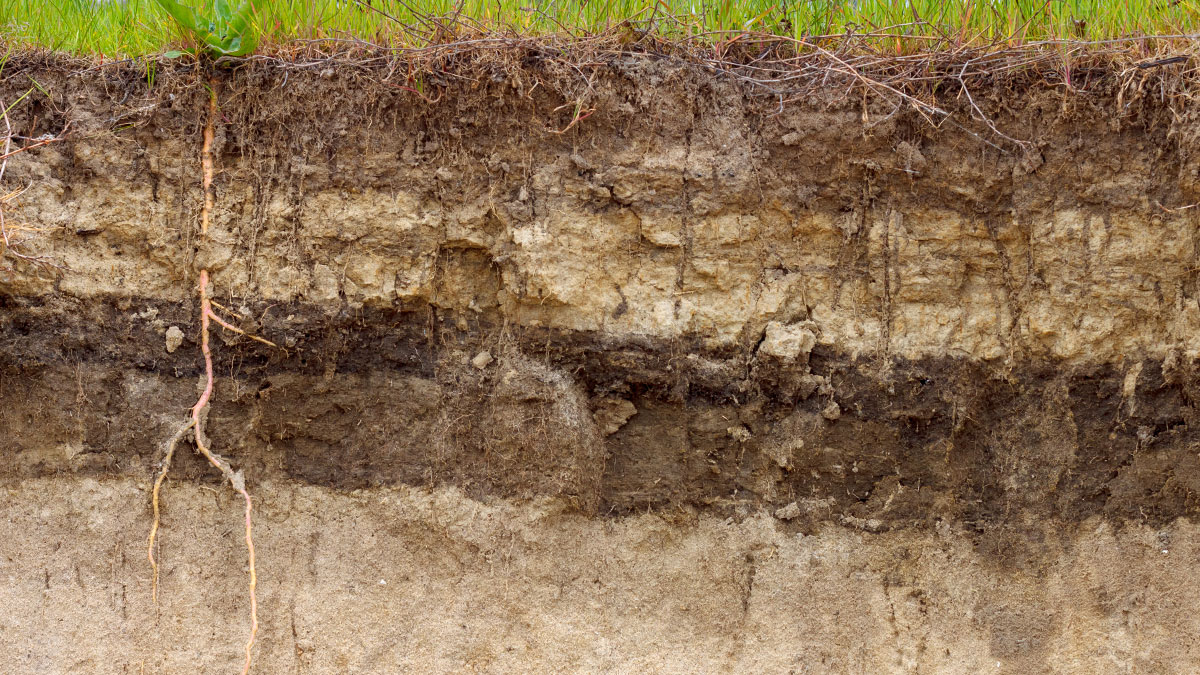On the soil
Climate change brings disruption, destruction and displacement. Tragically, this usually affects those least equipped to cope.
Globally, science is scrutinising climate issues and urgently looking at new ways of working and finding alternative methods to protect the environment from further degradation. The University of Reading is part of the frontline in these efforts and is ranked in the top 150 in the world for Environmental Sciences (QS World University Rankings by Subject 2025, joint 108th out of 551 overall).
Students at Reading have the opportunity to work with leading researchers who are often at the forefront of their field.
Research-embedded teaching
Dr Tom Sizmur is Associate Professor and Director of the BSc Environmental Science course.
He completed his PhD in Soil Science at the University of Reading in 2011, with a project focusing on earthworms. Today, his teaching burrows deep into his research specialisms, which include improving soil health by applying organic amendments and investigating the impact of environmental change on pollutant behaviour and soil biogeochemical cycles.
“Organic amendments that enter into soil contain carbon that was taken out of the atmosphere, as well as increasing the health and fertility of soils. So clearly, increasing soil organic matter is beneficial. The aim of my research is to gain maximum benefits with situation-appropriate changes, because, of course, change must be rooted in reality.
"Some novel strategies we explore include diversifying the plant communities growing in soils. Growing other crops between cash crops lets the soil go back to hosting polycultures. This increases diversity and draws more carbon back into the soil."
This kind of research is vital to the future of agriculture. Drawing from it, Tom's teaching lays strong foundations for his students' future careers, equipping them with skills highly valued by employers. He and other academics give students access to innovative soil research and insights into the development of new cultures around soil use.
Future-proofing earth
A hundred years ago, farming was more natural and less intensive than today. It was customary to allow land to lie fallow between crops. But planting inexorably intensified and at the same time, livestock were separated from arable crops. The consequent lack of cross-manuring, along with relentless cropping, severely depleted and degraded the soil.
Reversing this degradation is one of the potential pathways to soil health, but it remains in the early stages.
However, Tom's focus on soil is global. For example, he has collaborated with scientists in Ghana where 20 years of rainforest-cleared cocoa plantations had led the land to became infertile.
Some farmers now adopt nutrient recycling strategies, such as returning composted cocoa pod husks back to the soil. These fruitful innovations allow the soil to experience more natural conditions, resulting in current plantations becoming more productive for a longer time.
Fieldwork is also an increasingly important component of many modules, from GIS mapping on the University campus to exploring other real-world settings in the UK and abroad.
Former "Cinderella subject" now in the limelight
With many similar hopeful developments underway, Tom believes the potential for optimism is growing.
“Previously, the importance of soils always lagged behind water and air. It could be termed the 'Cinderella subject'! But now soil is gaining in importance and has gained much attention with policy makers.
"This is obviously vital, but it is equally important for soil to remain grounded. The future can only work with interaction with farmers: learning from their history, visiting farms, developing farming groups, and instigating discussion and advice.
"Knowledge and ideas come from farmers. They are the ones who observe benefits and change and this in turn stimulates research.
"So the dialogue between farmers, academics and policymakers is vital. The University of Reading is ideally placed for this: its beginnings lie in agricultural training and the University owns a number of farms, with much land set aside for field experiments."
Tom underlies the importance of embedding soil culture change into law. The scientific tools are already there to improve our soils, he points out, and we are getting more sustainable. He suggests that we have grounds for optimism, but questions whether change will be fast enough.
About Dr Tom Sizmur
Tom leads a research group consisting of PhD and postdoctoral researchers and technicians at the University of Reading, who contribute to his wider vision to exploit organic matter and soil biological communities in order to provide ecosystem functions and services that benefit society.
He is the Principal Investigator of the DIVERSE project, which aims to investigate the influence of residues incorporated after growing cover crop mixtures.
Tom is the Vice Chair of the Environmental Chemistry Group of the Royal Society of Chemistry, an Editor for Environmental Toxicology and Chemistry, a member of the British Ecological Society and Commonwealth Scholarship Commission Peer Review Colleges.
He is a co-investigator of a large UK food research project reimagining how food policy, food products and food supply chains can be developed to put healthy, sustainable food on everyone's table.
For more information on Tom's research, please see his personal webpage.
